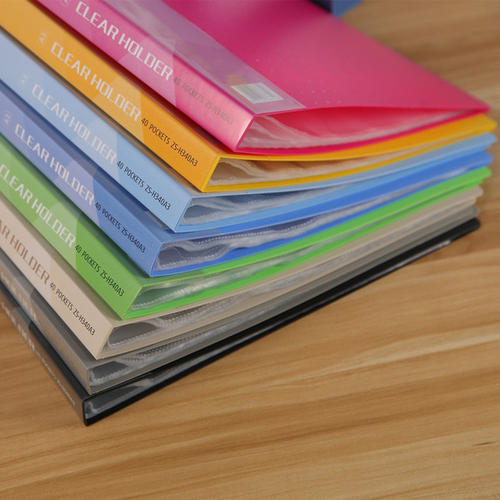英语作文应用文格式注意
玛丽莲梦兔
583次浏览
2020年07月30日 23:24
最佳经验
本文由作者推荐
一方等于多少平方米-无庸置疑
格式:信内地址下隔一二行写称呼,其左要与信内地址第一行对齐。对不相识的男子,单数常用 “Sir”, “Dear Sir”, 或 “My Dear Sir”;复数常用 “Dear Sirs” 或“Gentlemen”。 对女子,单数常用 “Madam”,“Dear Madam”或“My Dear Madam”;复数常用“Mesdames”或 “My Dear Mesdames”;对比较熟识的男子,普通称 “Dear Mr. ……”; 女性通常称“Dear Mrs. (或Miss)……”。熟人和亲人常直呼其名,不用姓氏(以 “Dear”为例):1)“Dear David”;2)“My dear David”;3)“My David” 4)“My dearest David”;5)“My Dearest”;6)“Darling David”;7)“My Darling”;8)“My very own darling”等。有头衔的可把头衔写放在名字前,如“Prof Wang”, “Dr Lin”等。
四:正文(Body of Letter)
格式:称呼下面隔两行开始写正文。每段第一个字母要缩进3至5个字母的空格。正文是信的主要部分,内容要简单明了,一般不用同汉语信一样的“你好(how are you?)”之类的词。
五:结束语(Complimentary Close)
结束语是写信人对收信人的谦称,写在正文下面二三行处,从中间写起,第一个词不达意的开头字母要大写,末尾用逗号。给不相识的人可用:
“Yours truly”或“Truly yours”
“Yours faithfully”或“Faithfully yours”
“Yours Sincerely”或“Sincerely yours”
给上级或长者可用:
“Yours respectfully” 或 “Respectfully yours”
“Yours obediently”或 “Obediently yours”
“Yours”, “Yours ever”, “Ever yours”, “Yours as ever”或 “Yours sincerely”
给亲属或挚友的信可用:
“Yours affectionately”, “Lovingly Yours”, “Your loving son(child, sister…)”, 或”Yours devoted friend”等。结束语末尾要用逗号。
六:签名(Signature)
即写信人署名。一般情况下,把本人姓名签在结束语之下。考试时候统一写为“Li Ming”。
9月12日
短文指导
Yesterday you failed to turn up for the appointment with your teacher, Professor Wang. Write him a note to
1) express your apology;
2) make a request for another appointment;
3) and also suggest a time for the requested appointment.
You should write about 100 words on ANSWER SHEET 2. Do not sign your own name at the end of the letter. Use “Li Ming” instead. You do not need to write the address. (10 points)
范文译文
Dear Prof. Wang,
I write this note to express my great apology to your as I failed to turn up for the appointment with you yesterday afternoon. To be frank, I did remember to meet you at your office when my father suddenly had a stomachache and I had to send him to a nearby hospital. Then I gave you a phone to call off the meeting but the line was busy. I intend to arrange another appointment if it takes no further trouble for you. I am
wondering if it is convenient for us to meet next Monday morning. I am expecting an early reply from you.
Sincerely yours,
Li Ming
(106 words)
星期四下午我失约了。我写这封信的目的是为了表达我的歉意。我没有忘记,但是当时我父亲突然腹痛,我只能送他去医院。给您打电话,您的电话又占线。如果您方便我想下周一早上再与您见面。敬请回复。
思路启迪
凡是细心比较一下中文和英文篇章结构的人,不难发现,英文中心主旨表达的开门见山。书信或便条的写作也应该注意这一点。篇章开头直接表明书信的目的、作者的态度和观点、篇章的主题。写好主题句不仅要表达作者的态度,还需根据内容和字数等要求,对题目的范围进行控制和确定。
就主题句而言,一方面它应该具有概括性,这样才能达到主题句应该具有的功能;另一方面要有具体的、标明主题导向的关键词语,这样下面的发展句才能顺利的展开。本单元的主题句开门见山的表明了写作的目的是为了表达歉意,点出了“约会”这一主题。
此外,主题句要显得自然,在篇章中起到背景引导的作用。建议读者认真研读和分析本书中各篇应用文首句的构思,并加以效仿。
9月13日
短文指导
You have got a ticket to a computer fair, but you now find that you are unable to go. Write a note to your friend, George,
1) introducing the fair briefly;
2) explaining why you are sending the enclosed ticket to him;
3) and telling him briefly how to get there.
You should write about 100 words on ANSWER SHEET 2. Do not sign your own name at the end of the letter. Use “Li Ming” instead. You do not need to write the address. (10 points)
范文译文
Dear George,
I’ve got a ticket for a computer fair, but now I find I’m unable to go because of some unexpected businesses. I’ve learned there are a lot of updated anti-virus programs and newly-developed models on show, and a cyber-head like you would not miss the opportunity for anything. I can’t go because I’m going to meet with an important client, so I send the enclosed ticket to you. It is very convenient for you to get there this Friday afternoon. You may go by taxi or take the No 12 bus, and you can’t miss it. Please let me know when you have received the ticket. Hope you will have a nice time.
Sincerely yours,
Li Ming
(109 words)
我有一张计算机展销会的入场券,但是突然有事去不了。展销会上有许多升级计算机放毒软件和新开发的机型。任何电脑迷都不会错过这个机会的。我要去见一个重要的客户,现在把入场券给你随信寄来。你周五下午去那里很方便,打车或乘坐12路公共汽车就可以了。收到信后告之我。祝你愉快。
思路启迪
段落中
的各个句子必须围绕一个主题(一个内容)展开;短文中的各个层次则围绕短文的主题,从不同侧面深入阐述。
保证句子的统一性和连贯性是组词的基本要求。句子的统一性和连贯性是相辅相成的,最简单的解释是,意思完整,主次分明,前后连贯。从语义上看,句子各部分应该是紧密联系在一起,表达一个完整的意思;从语法角度来看,正确的句子应该是结构严谨,关系一致,语序正确;从修辞角度来年,好的句子应该是中心突出,逻辑性强,准确简练。如果一个句子表达的意思不完整,主次关系不明确,逻辑关系混乱,那么这个句子的统一性和连贯性就遭到了破坏,句子就有语病,读者也就无法了解作者的本意。
所谓一致性就是说,一段文章必须讨论一个中心思想,服务于一个目的。根据一致性的原则,文章中所有的细节都要与主题句直接有关,要有利于说明中心思想。任何与主题无关,或者说服力不强的内容,都必须舍弃,否则会使读者迷惑不解,而有损于作者意图的表达。
应用文写作同样必须注意文章的一致性的原则。在展开时必须牢牢把握好提示的要点,才能达到写作的要求。
9月14日
短文指导
You’ve learned that your friend Jimmy is ill these days. Write him a note
1) expressing your concern;
2) asking after his health;
3) and giving your best wishes.
You should write about 100 words on ANSWER SHEET 2. Do not sign your own name at the end of the letter. Use “Li Ming” instead. You do not need to write the address. (10 points)
范文译文
Dear Jimmy,
I’m so sorry to hear that you have been ill these days. Because recently I’m up to my ears with my preparation for the final English test, I haven’t heard anything about you until yesterday. I became very worried when I heard that you had again caught a terrible flu. So I am writing to you and would like to know how you are now. I think you should take a complete physical checkup and find out the real trouble it the illness persists. My help will be available as my aunt is a doctor. Please let me know if you need any help. Wish you good health.
Sincerely yours,
Li Ming
(109 words)
当Bob告诉我你这久生病时,我相当的难过。因为最近一直忙于英语期末考试,昨天才听说你的情况。听说你又患感冒,我很担心,随即马上给你写信问你的情况。如果病情仍不好转,我建议你去做一个体检。我婶婶是医生,可能帮上忙。请告诉我。祝你健康。
思路启迪
就应用文的写作而言,根据考试大纲的要求,考生所写篇章在格式与语域方面必须恰当贴切。对目标读者完全会产生预期的效果。指在书面和口头表达中根据不同的交际对象,所采用的话语方式,
即正式、一般、非正式的话语等。
考生在平时准备或考试时应该注意的重要方面有:
一:正式语体(书卷语)、一般语体(共核)、非正式语体(口语体)在词汇层次、短语层次、句型层次和篇章层次都有区别。本书将在第四章进行简要的归纳和总结,以帮考生养成使用语言时注意所使用语言的贴切性。
二:正式语体词的使用范围较窄,而且一般只在书面语中出现,若出现在口语中,则有讽刺、调侃或幽默的语用效果。考研英语写作部分的Part B节考生需要按照正式或共核语体写作。英语语体意义高的词汇一般都比较长,我们随后将在第四章讨论这一点。
三:中性语体成分的使用范围比较广:既可以出现在正式语体中,也可以出现在一般介绍或叙述性语篇中,还可能出现在口语中。就这一类词汇的特点,英语的中性语体和口语、俚语等词汇一般都比较短小,尤其是后者,因为短,使用起来才方便,长了拗口。
四:考生在写作应用文时必须判断篇章的接受者与自己的亲密程度、接受者的身份高低、交际场合的正式程度、自己作为作者的身份等。综合考虑之后,再做出文体的判断。之后在选择恰当贴切的篇章组织、句型、词汇等。这样才能达到大纲的要求,取得较好的分数。



